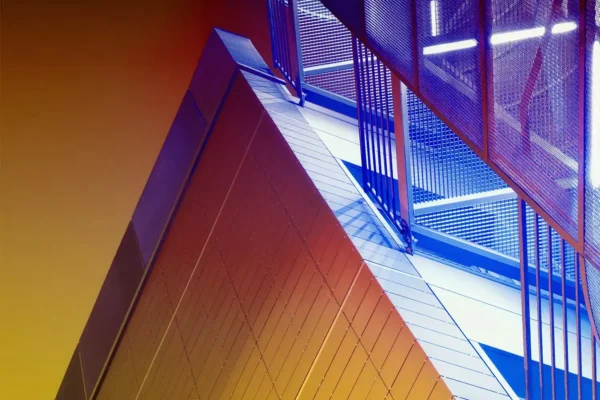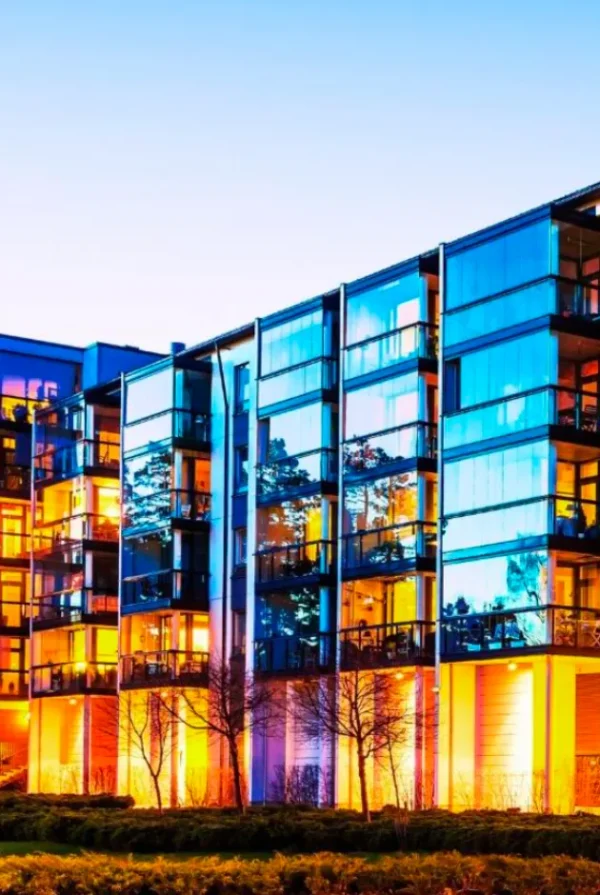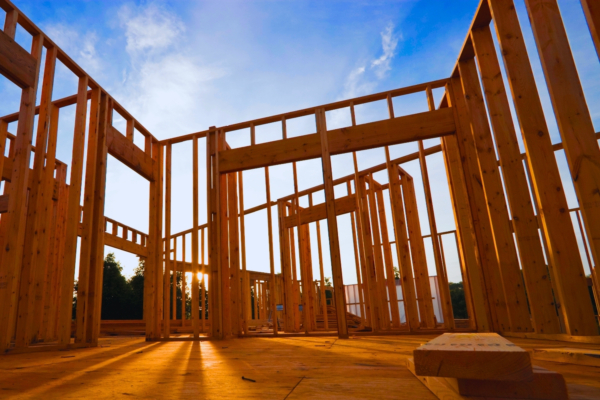
What You Need to Know: Construction Business Loans

Construction business loans can finance the costs associated with buying land or real estate, the construction of a new building, or the renovation of an existing structure. The types of construction can range from new homes to commercial buildings, and the funds can be used for costs associated with the build, such as construction materials, equipment, as well as labor.
How Construction Business Loans Typically Work
A construction business loan works via a draw schedule—repayment terms are tied to specific milestones. For instance, when a specific step in the construction process is met, you can draw a set amount of your construction business loan to pay for the costs associated with that milestone.
One of the advantages of this type of loan is that you only pay interest on the amount you have actually borrowed. So, if you have only received $100,000 of a $500,000 loan, you will only pay interest on the $100,000.
| Traditional Mortgage | Construction Business Loan | |
| Type of construction | Completed structure | Structure under construction |
| Loan disbursement | Lump sum | Draw schedule based on completed construction milestones |
| Repayment terms | Consistent payment over set period of time | Only pay for the portion of the loan that is disbursed |
Commercial Lending Solutions
Ready to take that next step? Talk to our Commercial team today.
Types of Construction Business Loans
When shopping around for a construction business loan for your project, there are several different types of loans available, based on the needs of your project. These loans include:
Land development loans
This type of construction business loan can be used to purchase and develop land for a commercial property. These loans can also finance associated costs, like installation of water, sewer, and power lines on the construction site.
Acquisition and development (A&D) loans
A&D loans provide funding for both purchasing and building on undeveloped land. However, if there are already existing buildings on the land purchased, the funds can sometimes be used to cover infrastructure improvements for those structures.
Mini-perm loans
These loans cover the costs of labor and materials while construction is taking place. Mini-perm loans may also be known as interim loans because they usually last between 18-36 months and must be paid off in full once a permanent mortgage loan for the property can be secured.
Takeout loans
In contrast to a mini-perm loan, takeout loans are permanent mortgage loans that are put in place after a short-term loan runs out. Projects that lenders consider to be risky may require the borrower to secure a takeout loan before they can be approved for a mini-perm loan.
Horizontal vs. vertical construction loans
Lenders make a distinction between horizontal and vertical construction. The most basic difference between these types of loans is the spatial element of the build you are working on. Horizontal typically refers to infrastructure, while vertical refers to structures. A few examples of horizontal and vertical construction are as follows:
| Horizontal construction | Vertical construction |
| Roads, railways and bridges | Skyscrapers, offices, apartment buildings |
| Electric lines and fiber optics | Parking areas |
| Pipelines, sewers, waterlines | Building foundations |
Cost of Construction Business Loans
Just as with any type of loan, there are costs associated with securing funding. With construction business loans, lenders will require a down payment to secure the loan, interest payments on the amount borrowed, and they may also assess other fees as well.
Down Payment
A down payment is required to take some of the risk off the lender. Typical down payments range from 10%-30% of the total project cost. Conventional lenders typically look at what is called the loan-to-cost ratio, which is the total amount of the loan requested divided by the total project cost. If a business is asking for a $165,000 loan for a project that costs $200,000, for example, the loan to cost ratio would be 82.5%. Most lenders require a loan-to-cost ratio of 80% to 85%.
Interest Rates
The interest rates for commercial construction loans tend to be higher than conventional financing. Of course, the higher your credit score, the better your interest rate will be. The lender you work with will also play a role in determining your interest rate—government-backed loans and those offered by banks and credit unions typically have lower interest rates, while money lenders have the highest.
Associated Fees
As with any loan, there are several fees that may be associated with a commercial construction loan, including:
- Guarantee Fees
- Processing Fees
- Documentation Fees
- Project review Fees
- Fund control Fees
- Down Payment
Where to Secure a Business Construction Loan
Where and how to secure a construction loan will vary based on the type of construction project, while the terms you’re able to secure will be influenced by things like your credit score, debt-to-income ratio and your company’s debt service coverage ratio (DSCR)—which measures your ability to repay the loan with your existing cash flow. Below is a list of programs and institutions that you can look to during your search for a construction loan.
SBA Loan Programs
There are multiple options when it comes to Small Business Administration (SBA) Loans, and the terms can change over time. It’s important to get your SBA Loan information from a lender who is well-versed in how these loans work. There are two main programs you may want to consider:
- CDC/504 Loan Program: The Small Business Administration (SBA) CDC/504 loan is one of the most popular loans used for commercial construction. SBA loans come with low down payments, competitive interest rates, and credit score requirements in the high-600s. This loan typically covers building new facilities, renovating existing facilities, or purchasing / improving land. Borrowers can typically borrow up to $5 million.
- SBA 7(a) Loan Program: Through this loan program borrowers can receive up to $5 million, and the repayment terms may go up to a 25-year term loan. Qualifying for this type of loan typically requires a credit score in the high 600s, and a down payment between 10% and 20%.
Bank Loans
A traditional bank loan is always an option. With these loans, rates, repayment, and down payment requirements vary. Generally, a down payment of at least 10% is required, and maximum repayment terms of 25 years are standard. Fixed and variable rates are available.
Mezzanine loans
When a loan-to-cost ratio is lower and the borrower needs additional options, they can secure a mezzanine loan, which is secured with stock. If the borrower defaults on this loan, the lender can convert to an equity stake in the property. With this type of loan, the borrower has more leverage and can achieve a loan-to-cost ratio of up to 95%.
Finance Future Construction with Amplify
Whether you’re building a new medical office building, storage facility, or mobile home park, Amplify offers flexible options to finance projects for investors and business owners.
Our commercial lenders know the region and work hard to understand your project, helping you to develop a construction loan and providing post-closing oversight to achieve your vision. Talk with one of Amplify’s local commercial loan officers today!
Looking for a Commercial Loan?
Amplify’s commercial lending team can help you find the right loan for your business!


